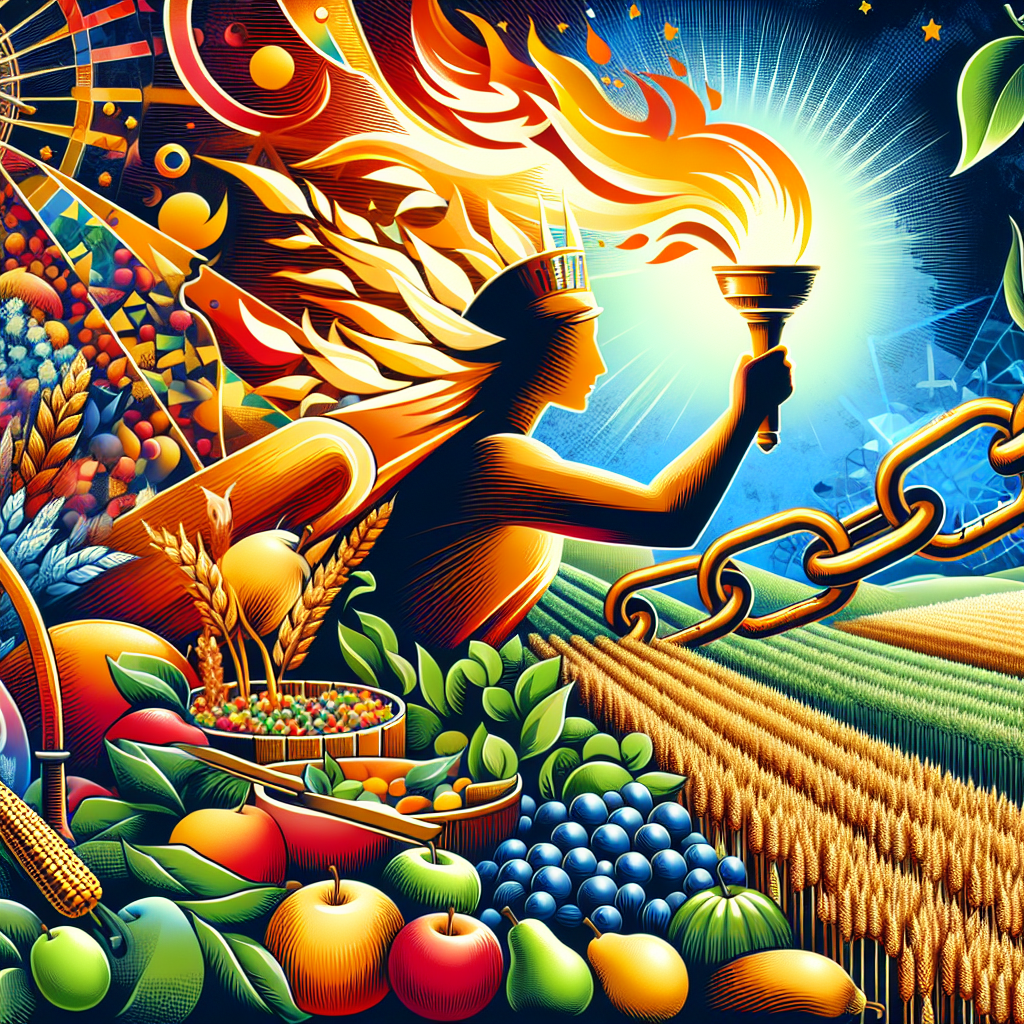Food Freedom: Advocating for Libertarian Policies in Agriculture
Food freedom is a concept gaining traction among advocates of libertarian policies in agriculture. At its heart, food freedom is about the right of individuals to have control over their food choices without excessive government intervention. This article delves into the concept of food freedom, its importance, and how libertarian policies can reshape our agricultural landscape for the better.
What is Food Freedom?
Food freedom refers to the ability of individuals to make their own food choices, including how and where their food is produced and consumed. This concept champions minimal government interference in food markets, allowing consumers and producers to engage freely and make decisions that best suit their needs and preferences. The essence of food freedom can be summarized in three main components:
-
Consumer Choice: Individuals should have the autonomy to select their preferred food products, whether they come from local farms, grocery stores, or direct-to-consumer suppliers.
-
Agricultural Independence: Farmers and producers ought to have the right to cultivate and sell their products without restrictive regulations that hinder their operations or profit margins.
- Marketplace Dynamics: A thriving food marketplace requires fair competition. Libertarian policies advocate for reduced regulations that can stifle innovation and efficiency.
The Case for Libertarian Policies in Agriculture
Advocating for libertarian policies means prioritizing freedom of choice, economic opportunity, and personal responsibility in the agricultural sector. Here are several reasons why libertarian policies are beneficial for agricultural practices and consumer welfare.
1. Reducing Bureaucracy and Regulations
Government regulations can often be cumbersome and overwhelming for small farmers. By minimizing these regulations, libertarian policies promote a more agile and responsive agricultural sector that allows for creative farming solutions. Farmers can allocate their resources more efficiently and adapt to market demands without excessive oversight.
2. Encouraging Sustainable Practices
When consumers have the power to choose, they will gravitate towards foods that resonate with their values, including sustainability. Libertarian policies can foster innovation in sustainable farming by allowing market forces to drive practices that are both economically viable and environmentally friendly. This results in a win-win scenario where consumers support sustainable practices actively through their purchasing choices.
3. Supporting Local Economies
Food freedom enables local farmers to thrive and compete without being overshadowed by large agribusinesses. By shopping locally, consumers can ensure that their money supports small producers in their communities, thereby stimulating local economies. Libertarian policies encourage a diversified agricultural landscape where local businesses can flourish.
The Role of Direct Sales and Alternative Markets
One of the key features of food freedom is the rise of alternative markets, such as farmers’ markets, community-supported agriculture (CSA), and online food delivery services. These avenues empower consumers to bypass traditional distribution channels and connect directly with producers.
1. Transparency and Trust in Food Sources
Direct sales allow consumers to know exactly where their food comes from, fostering transparency and trust in food sources. When producers and consumers interact directly, it creates a relationship built on accountability that is often missing in traditional supply chains.
2. Preventing Monopolies
With reduced regulations and encouragement for multiple distribution methods, the risk of monopolies forming in the food industry can be curtailed. Food freedom advocates for a diverse range of choices, ensuring that power isn’t concentrated in the hands of a few corporations.
Challenges to Food Freedom
While advocating for food freedom offers numerous benefits, it is not without its challenges. Critics often argue that without sufficient regulation, unsafe practices may go unchecked, leading to health risks for consumers. Balancing freedom and safety must be approached thoughtfully.
Addressing Concerns about Safety and Quality
-
Self-regulation: Empowering consumers to make informed choices can drive producers to maintain high standards voluntarily, knowing that their success relies on customer satisfaction.
- Informed Consumers: Education about food sources and purchasing practices, paired with transparent labeling, can help consumers make well-informed decisions that prioritize their health and preferences.
Conclusion: Empowering Individuals Through Food Freedom
Food freedom aligns well with libertarian principles by promoting individual autonomy, reducing governmental overreach, and supporting local economies. As more consumers demand transparency and choice in their food systems, advocates for food freedom can play a crucial role in influencing agricultural policy in a way that prioritizes personal responsibility and community engagement.
Encouraging food freedom is not just a call for less government involvement; it is a clarion call for a system where consumers and producers can optimize their practices to support health, sustainability, and fairness in a responsive marketplace. By embracing food freedom, we take significant steps toward a more liberated, innovative, and enriching agricultural environment.
Share this content:












Post Comment